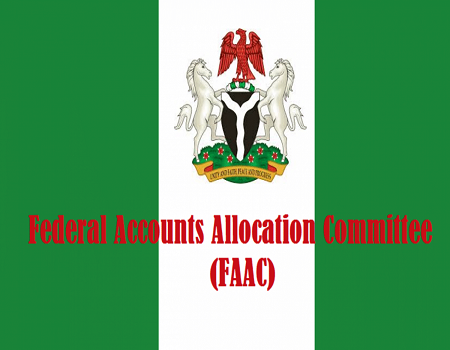States in the country have received N4.430 trillion in seven months of 2025 from the Federation Account Allocation Committee (FAAC) funds.
Delta State emerged the top recipient of FAAC funds, receiving N361.23 billion between January and July 2025, while Ogun State trail behind with N69.200 billion.
According to data from the National Bureau of Statistics (NBS) and FAAC reports, the top five states, Delta, Rivers, Lagos, Akwa Ibom, and Bayelsa – accounted for nearly 35 per cent of the total N4.43 trillion disbursed to all 36 states during the period.
Rivers State received N301.180 billion, Lagos (N279.030 billion), Balyelsa (N274.810 billion), Kano (N149.810 billion), Oyo (N119.810 billion), Anambra (N111.850 billion), Borno (N110 billion), Ondo (N109.640 billion) and Katsina (N109.310 billion).
Edo (N108.930 billion), Jigawa (N106.870 billion), Imo (N105.6 billion), Benue (N104.580 billion), Abia (N98.120 billion), Niger (N97.380 billion), Sokoto (N97.380 billion), Kogi (N95.2 billion), Kebbi (N94.690 billion), Kaduna (N92.980 billion), Enugu (N92.710 billion), Adamawa (N90.090 billion), Zamfara (N89.260 billion), Bauchi (N87.5 billion), Plateau (N86.680 billion), Yobe (N86.3 billion), Taraba (N84.570 billion), Nasarawa (N82.860 billion), Osun (N79.860 billion), Ebonyi (N78.290 billion), Gombe (N75.920 billion), Cross River (N72.450 billion), Ekiti (N70.830 billion) and Ogun (69.200 billion).
Speaking on this, the director/CEO of Centre for the Promotion of Private Enterprise (CPPE), Dr. Muda Yusuf acknowledged that “several States have made significant strides in infrastructure investment.
While not every state is equally proactive, many, especially in the northern regions and parts of the southwest, have been dedicated to enhancing agricultural support through investments in farm equipment, tractors, and related initiatives.”
Yusuf added that “some states have embarked on major projects such as the construction of airports and flyovers, which are crucial for urban development. The positive effects of these infrastructure improvements are evident in many state capitals, where increased revenue has visibly contributed to better services and facilities.”
He noted that it is important to recognize that these developments require a collaborative approach to ensure that the benefits reach all members of the community.
He pointed out that “however, it is crucial to consider the changing economic landscape. The purchasing power of money has shifted; what could be achieved with N1 million two years ago now requires nearly N3 million. This means our expectations from these revenues must be adjusted accordingly, taking inflation and economic conditions into account.
“While we celebrate the progress made in infrastructure and services, it is vital to remain mindful of adjusting our expectations in line with current economic realities.”





